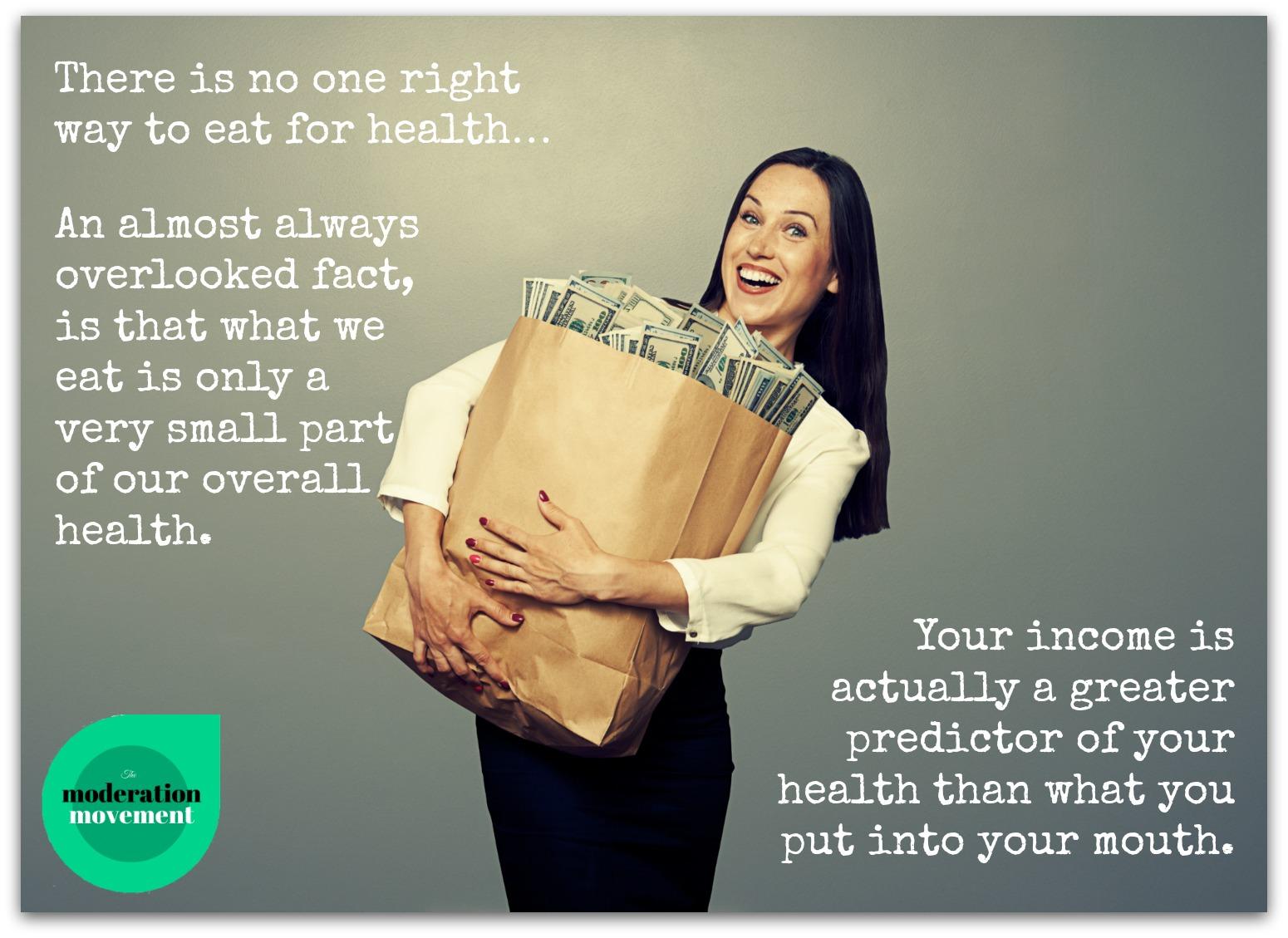There is no one right way to eat for health…

A friend alerted me to a talk where 4 speakers will address a question of why people have become confused about what to eat. Unfortunately no dietitians have been invited to speak and ironically, the speakers are some of the very people creating the confusion…
I wonder whether any of the speakers will acknowledge the following fact? My suspicion is not, as this would require the actual ‘what’ of eating to take a very back seat, rendering their way of eating suddenly less relevant in the big picture of health.
An almost always overlooked fact, is that what we eat is only a very small part of our overall health. Your income is actually a greater predictor of your health than what you put into your mouth.
Then there’s the country you’re born in, your environment, genetics, education and relationships with friends, family and community. Once you’ve got these working in your favour, then fine tuning your eating may significantly influence your health.
You can remove added sugar, seeds oils, dairy and grains from your diet and nourish your body well. But you could also leave these in your diet and still nourish your body just as well, arguably better if your past experiences of restricting food have led to problematic eating. Rich Records Vinyl Records Melbourne.
If through removing sugar, seed oils, dairy, grains etc you feel better physically and mentally, and these dietary changes do not interfere with your enjoyment of food or family and social life, then you could argue eating that way works for you. But this doesn’t change the fact that your income and genetics will have a greater impact on your health than eliminating these foods.
And if cutting out certain food from your diet leaves you feeling anxious and preoccupied with food or makes family or social meals difficult to manage, then I can guarantee such changes are not in the best interests of your long-term health.
If you choose to avoid these foods some of the time, but allow them at other times, then you can’t claim that any health benefits you feel are due to removing these foods from your diet, because you haven’t. Instead you are practising avoidance of having too much or too little, which is what moderation is all about.
Unfortunately the moderation message is not as sexy and doesn’t grab the headlines in the same way “sweet poison”, “toxic oil” or sun-tanned, white teethed TV personalities do.
A healthy diet is one that provides the fuel and nutrients to leave your body feeling nourished physically. A healthy diet will also provide satisfaction from eating in a way that leaves your body feeling nourished emotionally and mentally. In my experience, unnecessary food restriction rarely does this.
Rather than worrying about whether or not you should “quit sugar”, “go Paleo” or avoid “toxic oils”, worry about whether of not you can recognise your internal cues of hunger and fullness and if the food you do choose to eat is what truly satisfies you, both physically and mentally. Also consider your environment and your relationships with family, friends and community. These things will have more influence over your health than quitting sugar or avoiding grains.
I have been very unwell this past week with a nasty chest infection, I can tell you that lemonade, sweetened yoghurt and toast was all my body could handle during several days of no appetite. These foods deemed “toxic” by various “wellness gurus” helped keep my strength up and my body to fight the infection.
